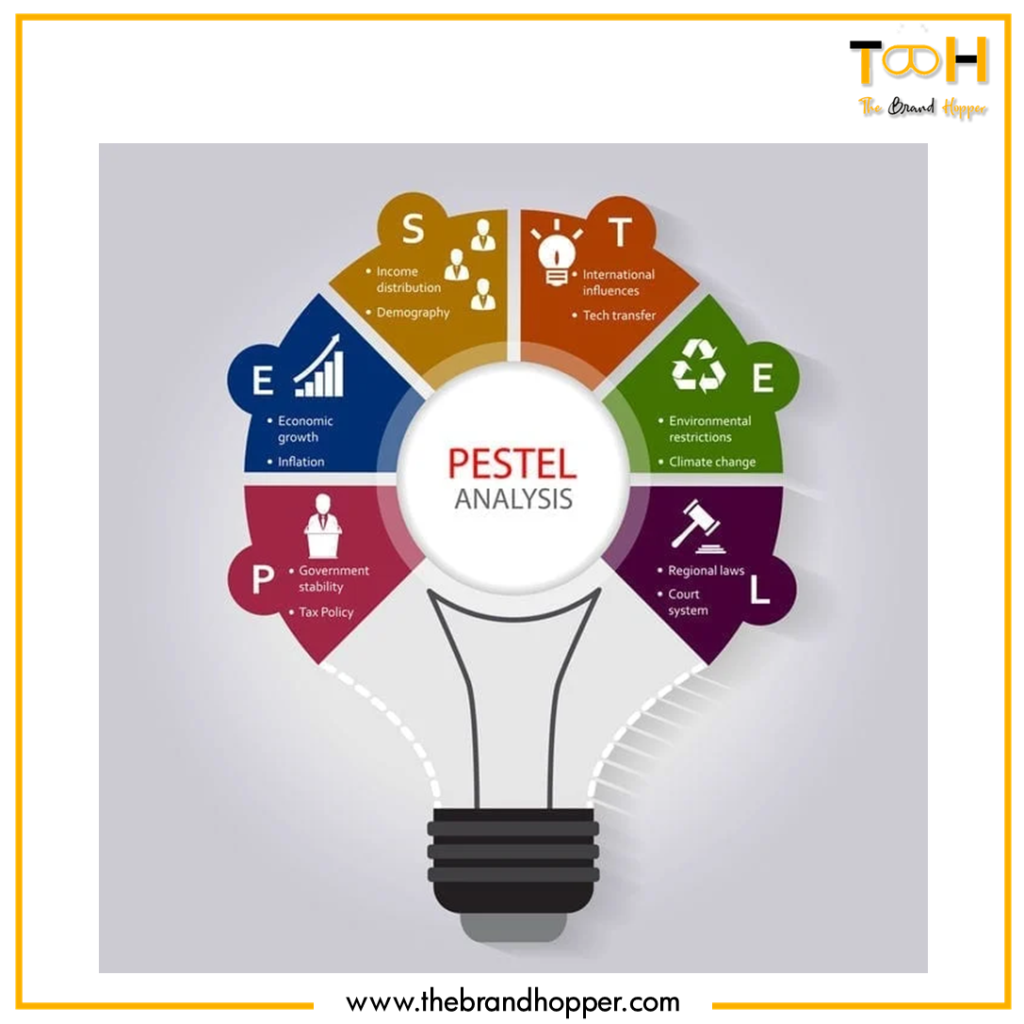Environmental Analysis
Environmental factors are those factors outside the control of the firm. This is often analyzed with the help of the PESTEL framework/model. This model analyses the environmental factors that are not in control of the firm but have an impact on the firm. Thus, PESTEL analysis is used to analyse all external factors.
PESTEL stands for
- Political
- Economical
- Social
- Technological
- Environmental
- Legal

PESTEL is also known as STEEPLE/ PESTELE, where ethical aspects of the environment are included in the PESTEL analysis.
- Political: Any firm has to work under the rule of the land. The political system of a country creates regulations and frameworks under which different firms operate. A new law has a positive effect on a few industries while a negative impact on other industries. Government trade policies, labour laws, tax policy, relations with other countries play a significant role in determining the effect on a firm. Governments at times, restrict/ban products, put a pricing cap, can put sanctions and make a new set of rules for any industry. Companies have to oversee which future regulations can be adopted and then change their policies in accordance with it
- Economical: Economic factors that impact an environment can be interest rates, economic growth, disposable income, consumer expenditure pattern, government spending. On a broader scale, economic factors can be macroeconomic and microeconomic. Macroeconomic factors are those which control and moderate demand for G&S, while microeconomic factors influence how people spend their money.
- Social: Society’s perception, beliefs and attitude are few of the social factors. Understanding social factors helps an organization understand how likely the consumers are to make the expenditure. For example, if people of a country are health and diet conscious, companies can market products accordingly. A country where more people dine out and prefer fast food on a go will be an attractive proposition for the fast-food restaurant industry.
- Technological: It is crucial to understand the technological factors into consideration. Technology keeps changing with time, and it can change the way products are marketed, distributed and communicated. Products and services involving more generous technological dimensions are less likely to fail and can better withstand competition.
- Environmental: Environmental factors are pollution level, scarcity of resources and impact a firm has on the environment. It can be accessed via several parameters like carbon footprint, greenhouse emission, temperature and radiation levels and many others depending on the type of industry or firm.
- Legal: A country governed by a set of rules and regulations and legal purview works to ensure that companies abide by rules and regulations and ensure that they don’t perform anything illegal. Legal factors can include following food and safety standards, providing proper labour working conditions, following advertising standards while advertising and many others.
- Ethical: Nowadays, when companies spend more on advertising and marketing, it works to ensure a positive and ethical image in the minds of consumers. Companies spend a fair chunk of profits on CSR activities and involve consumers at a more profound level. It thus becomes equally essential to be ethical in approach. For example, not using children in their factories, ensuring fair trade and many others.
Download PESTEL Analysis templates
[download id=”2230″ template=”PESTEL templates for presentation”]

